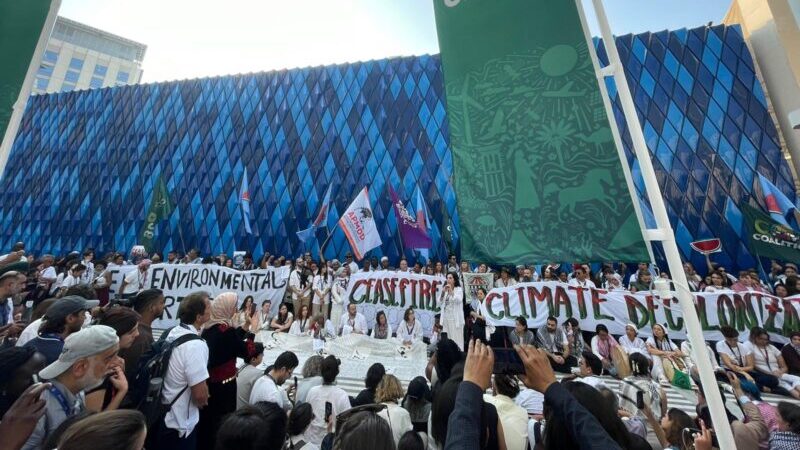Sign up to get our weekly newsletter straight to your inbox, plus breaking news, investigations and extra bulletins from key events
Do you find it hard to reconcile the Sultan Al Jaber the climate champion with Sultan Al Jaber the oil chief? So does he, if an unscripted moment reported by the Guardian is anything to go on.
In a live event with former UN special envoy Mary Robinson in November, Al Jaber momentarily forgot his PR-approved lines and reverted to industry talking points.
“There is no science out there, or no scenario out there, that says that the phase-out of fossil fuel is what’s going to achieve 1.5C,” he said.
He dismissed Robinson’s call for a phase-out as “alarmist” and said it would “take the world back into caves”.
Leading scientists Jean-Pascal van Ypersele and Michael Mann wrote Al Jaber an open letter in response.
Speaking for the climate system, “the most difficult party… which has only red lines and no flexibility,” they said, “humanity needs to phase out fossil fuels by 2050”.
Carbon capture and storage can only mitigate “a very small fraction” of fossil fuel emissions, the letter said.
That last point is critical, as the oil and gas sector cites scenarios that show some residual fossil fuel use with CCS to justify production on a much larger scale.
Laurence Tubiana, one of the architects of the Paris Agreement, unpacks the CCS myth together with Emmanuel Guerin in an article for Climate Home News.
“People in the oil and gas industry know there is zero probability of [a] high-CCS scenario coming true,” they write. “The reality is they are just fooling us one more time, to buy time we can’t afford to waste in dealing with the climate crisis.”
Al Jaber’s slip of the tongue shows why precision matters in negotiations. Phase down can mean something very different to phase out, and “unabated” fossil fuels need further defining.
The latest headlines
- Don’t be fooled: CCS is no solution to oil and gas emissions – Laurence Tubiana and Emmanuel Guerin, European Climate Foundation
- Vietnam charts uncertain coal path as finance falls short
- US tees up Congress battle with $3bn Green Climate Fund pledge
Health at the table
In a Cop first, health ministers took over plenary discussions on Sunday. Over 120 countries have signed a health declaration coordinated by the Cop28 presidency.
The declaration, and most ministerial statements, focused on strengthening healthcare systems as a means of climate adaptation.
It does not mention fossil fuels, or how burning coal, oil and gas releases harmful air pollutants besides greenhouse gases.
Sweden was one country to join the dots. “A decision here at Cop28 to phase out fossil fuels will contribute to [health] outcomes. The health of people and the planet cannot be separated,” said Mattias Frumerie, Swedish head of delegation.
Diarmid Campbell-Lendrum, head of climate and health at the World Health Organization, took the same view in a press conference.
“Talking about action on climate change without talking about fossil fuels is like talking about lung cancer without mentioning tobacco,” he said.
The ministerial plenary is an “important and delayed step”, but health discussions need to start mentioning fossil fuels, said Dr Arvind Kumar, founder of the Lung Care Foundation. Otherwise “the problem will not get solved”.
“Little cosmetic changes here and there are not going to make much of a difference,” he said.
In brief
Bad excuse? – Brazilian president Lula da Silva said in a meeting with NGOs that he is joining OPEC to “convince oil producing countries that they need to prepare for the end of fossil fuels”. Colombia’s president Gustavo Petro argued oil producers already know they have to move past oil.
Big polluters – Electricity generation in China and India, and oil and gas production in the US caused the biggest emissions rises since 2015, analysis published by Climate Trace shows. The figures are based on a database of 352 million emissions sources. Since the signing of the Paris Agreement emissions grew 8.6%.
Slow entrance – Crowds have eased at Cop28 since world leaders left town, yet long queues at the entrance still held up negotiations, Earth News Bulletin reports. More than 100,000 delegates are registered for Cop28, according to UN Climate Change.
Read More

